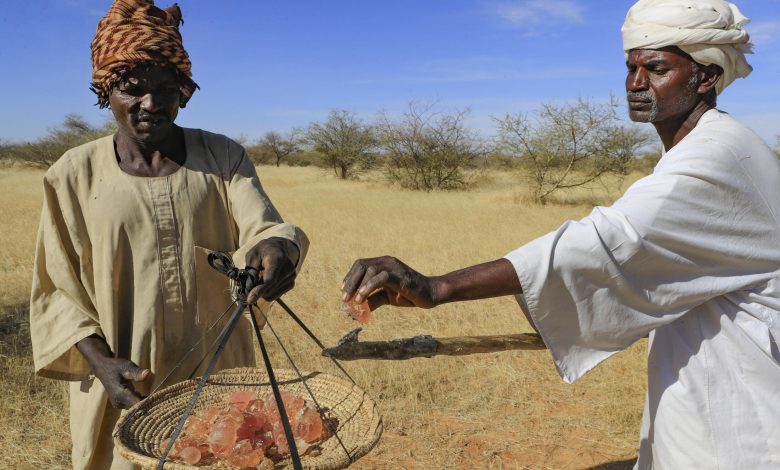Increase in Gum Arabic Smuggling Under Militia Protection

Sudan Events – Agencies
Traders and sources in the gum arabic extraction and export sector reported a rise in smuggling activities from areas controlled by the Rapid Support Forces (RSF) in Sudan, disrupting efforts by Western companies to keep their supply chains free from conflict involvement.
Sudan produces about 80% of the world’s supply of gum arabic, a natural resin extracted from acacia trees, which is used as an emulsifier, stabilizer, and thickener in key consumer products.
By late last year, the RSF, engaged in an ongoing war with the Sudanese army since April 2023, had taken control of key gum-producing regions in Kordofan and Darfur in western Sudan.
According to eight producers and buyers directly involved in the gum arabic trade, some based in Sudan, the product is now being smuggled into neighboring countries by Sudanese traders, with fees paid to the RSF, bypassing sustainability and ethical production certifications.
Two traders told Reuters that gum arabic is also being exported through informal border markets. Meanwhile, two buyers noted that traders in countries with lower production levels than Sudan, such as Chad and Senegal, or those that previously exported small quantities, like Egypt and South Sudan, have recently been offering gum arabic at persistently low prices, without proof that it is unconnected to conflict zones.
Hervé Canivet, a global marketing expert at Singapore-based **Eco Agri**, which trades in plant-derived ingredients, stated that tracing the origin of gum arabic is challenging because many traders do not disclose whether the product has been smuggled.
“I can confidently say that all Sudanese gum arabic currently on the market is smuggled, as there is no real governing authority there,” Canivet added.
Mohamed Hussein Suraj, founder of **Unity for Gum Arabic**, a Khartoum-based company that supplied international firms before the war, revealed that traders in Senegal and Chad had offered him gum arabic in December at significantly lower prices because it was smuggled and lacked proper documentation proving its source and quality. He refused to buy it. Other traders shared similar accounts with Reuters.
Before Sudan’s civil war, raw gum arabic was sorted in Khartoum and transported by truck to Port Sudan for shipment through the Suez Canal to international markets.
Abdullah Mohamed, a producer with acacia farms in West Kordofan, told Reuters that the RSF collects fees from traders in exchange for protection. The militia is also involved in extracting and selling gold, livestock, agriculture, and banking services.



